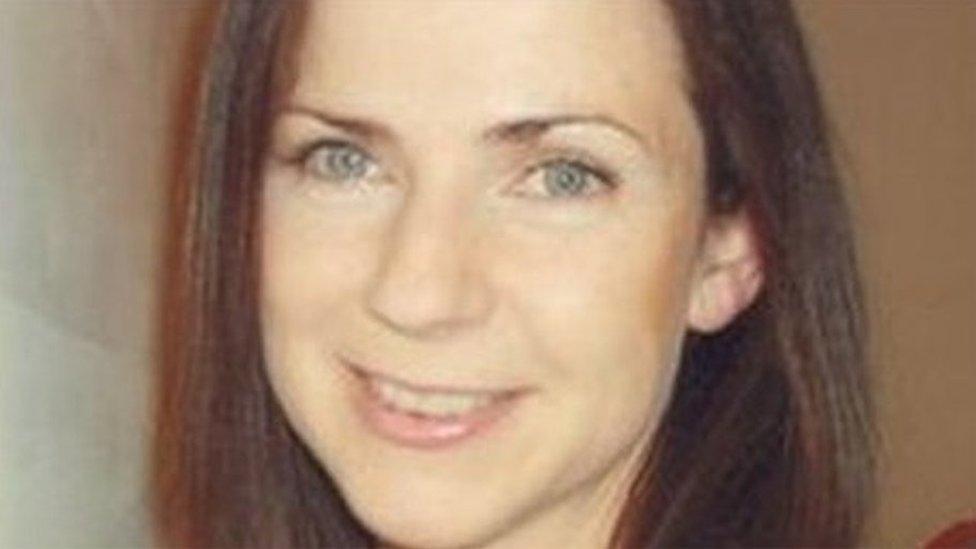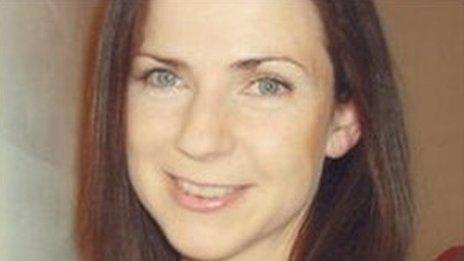Mary Griffiths: Children seek damages over mother's bolt-gun murder
- Published

Mary Griffiths was attacked in front of her three daughters in Bury St Edmunds
The children of a woman murdered by a stalker with a bolt-gun are seeking damages over her death.
Mary Griffiths of Bury St Edmunds, Suffolk, was killed by John McFarlane, who was jailed for life, in May 2009.
The family have brought a case against Suffolk Mental Health Partnership NHS Trust, which McFarlane was under the care of, and Suffolk Police.
The High Court in London heard that Ms Griffiths called police about her killer just hours before her death.
"For reasons that we will investigate in this trial they decided not to prioritise the call and did not attend," said Nicholas Bowen QC.
Jeremy Johnson QC, for the chief constable of Suffolk, said it could not be established that the police knew, or ought to have known, that there was a real and immediate risk.
McFarlane refused the NHS Trust's offer of accommodation on 3 May 2009 after a suicide attempt and an assessment found there was no reason to detain him.
Angus Moon QC, for the Trust, said there was no evidence to support the thought that its staff knew or ought to have known that McFarlane was stalking or harassing Ms Griffiths.
'Police should have attended'
Fitness instructor Ms Griffiths, 38, was killed after McFarlane smashed through the back door of her home with an axe, as she and her three daughters slept, in the early hours of 6 May 2009.
The 40-year-old slaughterman dragged her from her bed, where her 10-year-old daughter was also sleeping, beat her and shot her twice in the chest and once in the shoulder with a bolt gun normally used for stunning livestock.
He had been harassing Ms Griffiths in the days before the killing and she had called the police at about 18:00 on 5 May.
Mr Bowen said that had McFarlane been detained on 3 May under the Mental Health Act or proper steps been taken by either or both Suffolk Police and Suffolk Mental Health Partnership NHS Trust, the murder would not have occurred.
An Independent Police Complaints Commission report in 2011 said police should have attended Ms Griffiths' home.
But it found that it "could not be said" that the immediate arrival of an officer would have prevented the "horrific crime" and no misconduct had occurred.
Also in 2011, an NHS Midlands and East report found the killing could not have been predicted.
The contested case continues and is expected to last two days.
- Published8 November 2011
